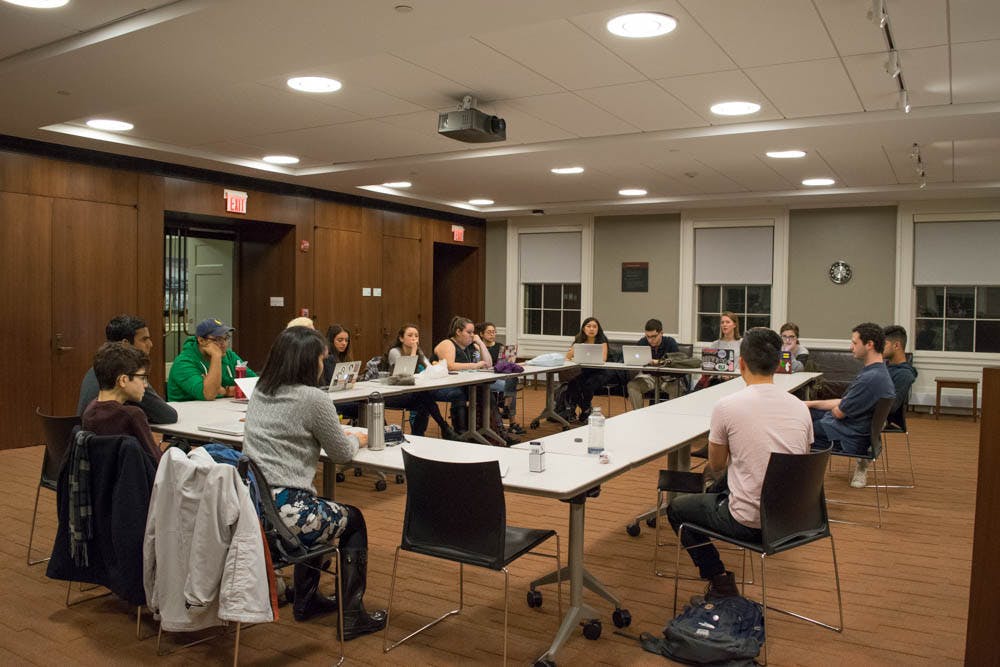The Undergraduate Council of Students discussed new initiatives to combat sexual assault at their meeting Wednesday. Members proposed that the University start using an application called Callisto, which would allow students to report sexual assault through their phones. Community members also asked UCS to support a campaign to reduce assault at Spring Weekend.
“UCS has always seen (sexual assault) as one of the most pressing issues on college campuses today, and we really want to do what we can in the position that we have to push for initiatives that will tackle this issue,” said UCS President Viet Nguyen ’17.
Members proposed Callisto, which was created by a survivor of sexual assault, as an online way for survivors to report their sexual assault. According to Callisto’s website, the mobile application is designed to empower survivors of sexual assault and create a smoother reporting process. The app, which saves time-stamped records of an assault, can match people with others who have reported the same perpetrator and reports incidents electronically to authorities and Title IX offices.
The app would “reimagine the reporting process from a position of compassion, empathy (and) support for survivors, ultimately empowering them to have greater control over their experience,” said Student Activities Chair Naveen Srinivasan ’19.
“Survivors don’t have to go through the process alone,” Nguyen said. “When survivors match with others, or even a group of people, it shows them a support system.”
The costs of Callisto, if adopted by Brown’s campus, would vary widely, Nguyen said. When Callisto was implemented at Pomona College, the school paid an initiation fee of $10,000 and a $25,000 annual fee, Srinivasan said.
“One app isn’t going to fix this problem, but a combination of the programs will (make) a good dent in the work we have to do,” Ngyuen said.
After the discussion of Callisto, Alex Volpicello ’18 and Molly Sandstrom ’17 introduced a campaign to reduce sexual assault at Spring Weekend and asked USC for support engaging students. The initiative consists of a visual campaign of stickers, temporary tattoos and condoms to remind students of consent and will include recruitment of student volunteers to encourage consensual behavior at Spring Weekend.
“There is a capitalistic type of entitlement during Spring Weekend,” Volpicello said. “When you spend all the time getting ready you expect an outcome, and often people expect sexual outcomes.”





